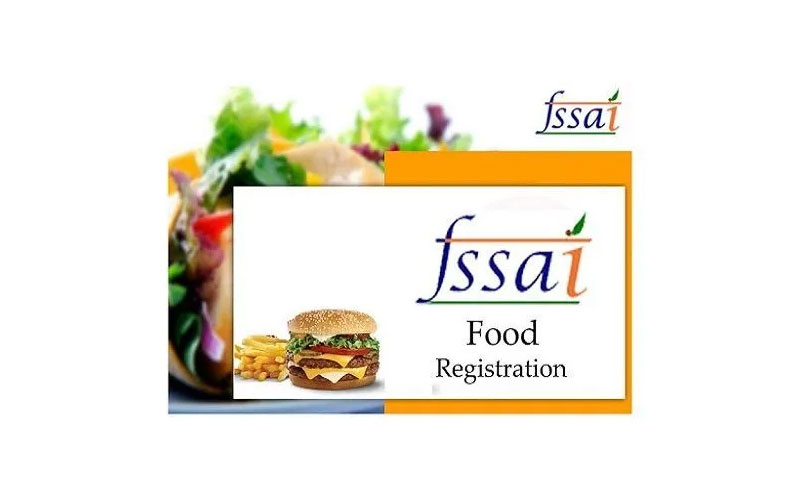FSSAI License

Serving Safety First: Your Roadmap to FSSAI License Compliance
If you're operating a food-related business in India—whether it's a small home-based kitchen, a bustling restaurant, or a large-scale food manufacturing unit—obtaining an FSSAI (Food Safety and Standards Authority of India) registration or license is not just a legal requirement but also a commitment to food safety and quality.
What Is FSSAI Registration?
An FSSAI License is a 14-digit registration or license number issued to food businesses in India. This number must be printed on all food packaging. It helps track the source of food products and ensures that the food being produced or sold meets national quality and safety standards.
FSSAI Registration is a mandatory certification for all Food Business Operators (FBOs) in India, ensuring that food products meet safety standards and are free from adulteration. This registration is governed by the Food Safety and Standards Act, 2006, and is essential for businesses involved in the manufacturing, processing, storage, distribution, or sale of food products.
Importance of FSSAI Registration
• Legal Compliance: It is a statutory requirement for all food businesses in India.
• Consumer Trust: Demonstrates your commitment to food safety, enhancing customer confidence.
• Market Access: Many retailers and distributors require FSSAI certification to source products.
• Competitive Advantage: Sets your business apart by adhering to recognized safety standards.
• Export Opportunities: Essential for exporting food products and meeting international regulatory requirements.
Types of FSSAI Registration
FSSAI registrations are categorized based on the size and nature of the food business:
1. Basic Registration
• Eligibility: Annual turnover up to ₹12 lakh.
• Suitable For: Small-scale operations like petty food manufacturers, home-based food businesses, and temporary food stalls.
• Application Form: Form A.
• Fee: ₹100 to ₹500 per year.
2. State License
• Eligibility: Annual turnover between ₹12 lakh and ₹20 crore.
• Suitable For: Medium-sized businesses such as mid-sized restaurants, food manufacturers, and catering services operating within a single state.
• Application Form: Form B.
• Fee: ₹2,000 to ₹5,000 per year.
3. Central License
• Eligibility: Annual turnover exceeding ₹20 crore or businesses operating in multiple states.
• Suitable For: Large-scale manufacturers, importers, exporters, and food chains.
• Application Form: Form B.
• Fee: ₹7,500 per year.
Documents Required for FSSAI Registration
The documentation varies based on the type of registration:
General Documents (Applicable to all types)
• Identity Proof: Aadhaar card, PAN card, Voter ID, or Passport.
• Business Constitution Certificate: Partnership deed, Certificate of Incorporation, or Shop & Establishment License.
• Proof of Premises: Rental agreement, No Objection Certificate (NOC) from the owner, or utility bills.
• Food Safety Management System (FSMS) Plan: A documented plan outlining food safety procedures.
• List of Food Products: Details of food items being manufactured or processed.
• Bank Account Details: Bank account information of the business.
• Declaration Form: A declaration form as required by FSSAI.
• Form B: Duly completed and signed application form.
How to Apply for FSSAI License?
You can apply for an FSSAI license online through the FoSCoS portal (https://foscos.fssai.gov.in):
1. Register/Login
2. Fill out the application form
3. Upload required documents
4. Pay the applicable fee
5. Wait for inspection and approval
Licenses are generally valid for 1 to 5 years, and must be renewed before expiry.
Frequently Asked Questions (FAQs) – FSSAI License
1. Who needs to apply for an FSSAI License?
Any individual or business involved in the manufacturing, processing, storage, distribution, or sale of food products needs to register with FSSAI. This includes restaurants, food trucks, home kitchens, cloud kitchens, catering services, and packaged food sellers.
2. What is the difference between FSSAI Registration and FSSAI License?
• FSSAI Registration is for small businesses with an annual turnover of up to ₹12 lakh.
• FSSAI License (State or Central) is required for medium and large businesses with turnover above ₹12 lakh.
3. How many types of FSSAI Licenses are there?
There are three types of FSSAI registrations/licenses:
• Basic Registration (for turnover below ₹12 lakh)
• State License (₹12 lakh to ₹20 crore)
• Central License (above ₹20 crore or inter-state operations)
4. How can I apply for an FSSAI License online?
You can apply online via the FoSCoS portal. Fill the application (Form A or Form B), upload documents, pay the fee, and await approval from the concerned authority.
5. What is the validity of the FSSAI License?
The FSSAI License can be issued for a period ranging from 1 to 5 years, based on your selection during application. It must be renewed before expiry.
6. What happens if I don't have an FSSAI License?
Running a food business without FSSAI registration is illegal and can result in:
• Fines up to ₹5 lakh
• Imprisonment
• Business shutdown
• Legal penalties under the FSS Act, 2006
7. Is FSSAI License required for home-based food businesses?
Yes, even home-based food businesses or home chefs need an FSSAI Basic Registration, especially if their turnover is under ₹12 lakh.
8. Can I sell food online without FSSAI registration?
No. Online food sellers, including those operating via platforms like Zomato, Swiggy, Amazon, or their own websites, must have an appropriate FSSAI License or Registration.
9. Can I use the FSSAI logo once I get my license?
Yes, once your license or registration is approved, you must print the 14-digit FSSAI number on all food packages and may display the FSSAI logo to showcase food safety compliance.
10. How much time does it take to get an FSSAI License?
Processing time usually takes 7 to 60 days, depending on the license type and approval from local authorities.
